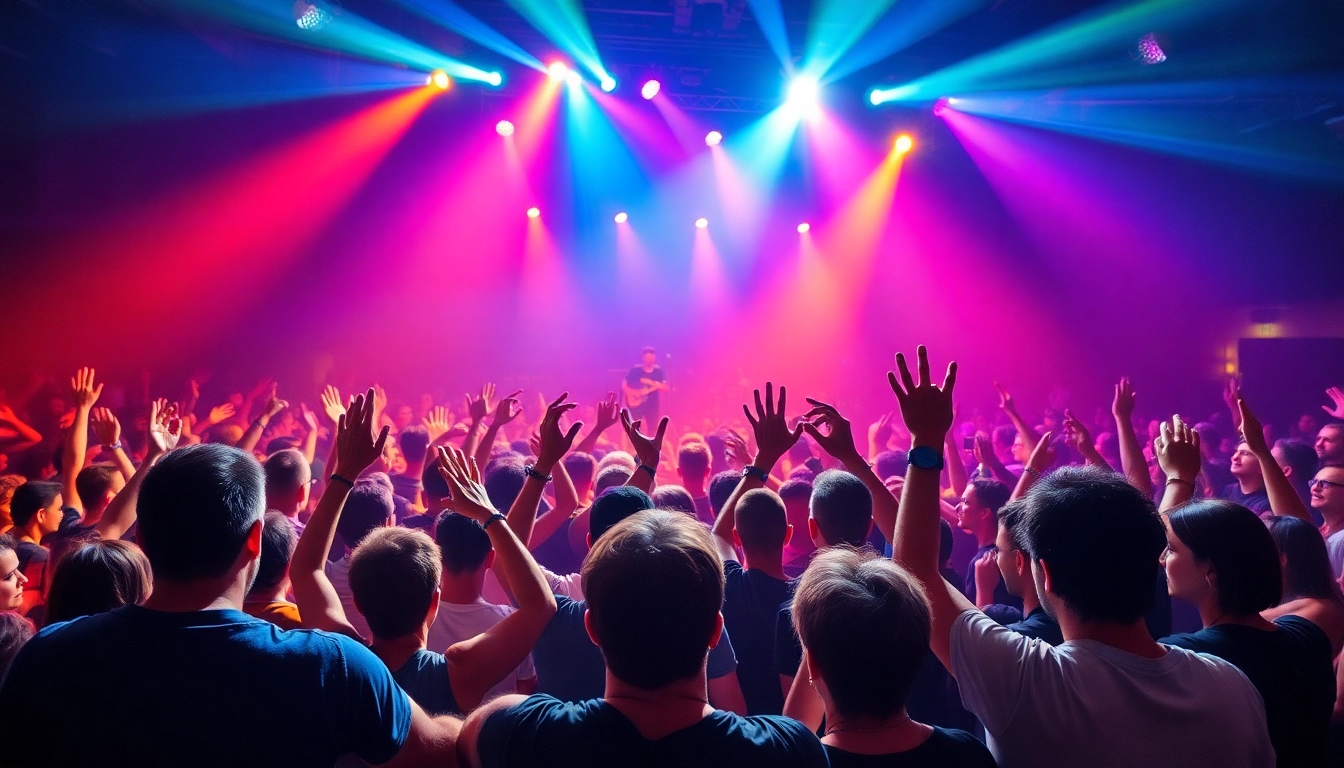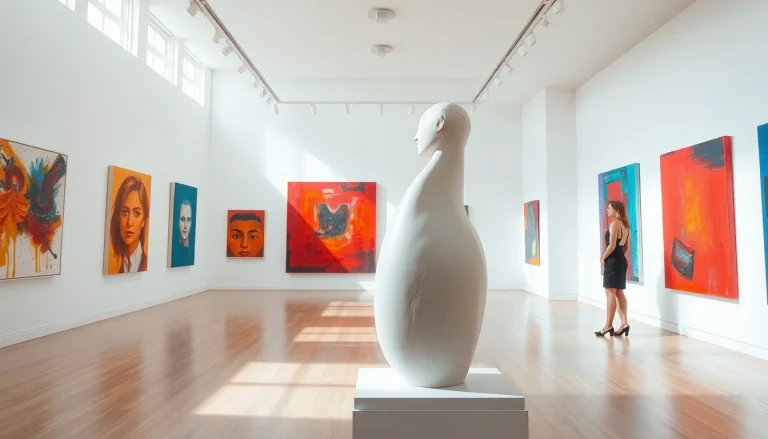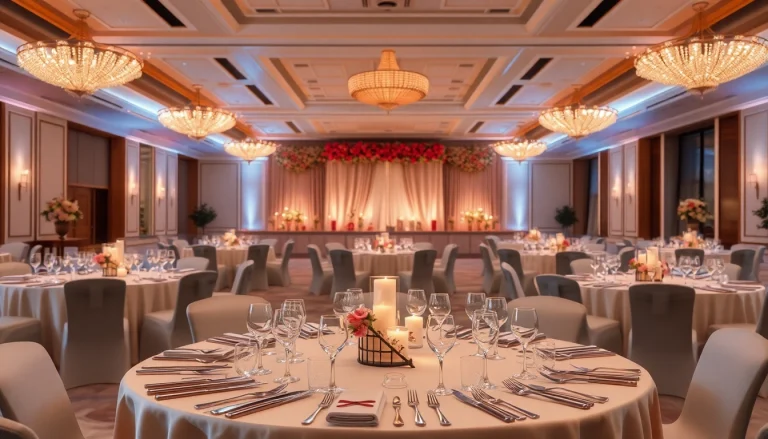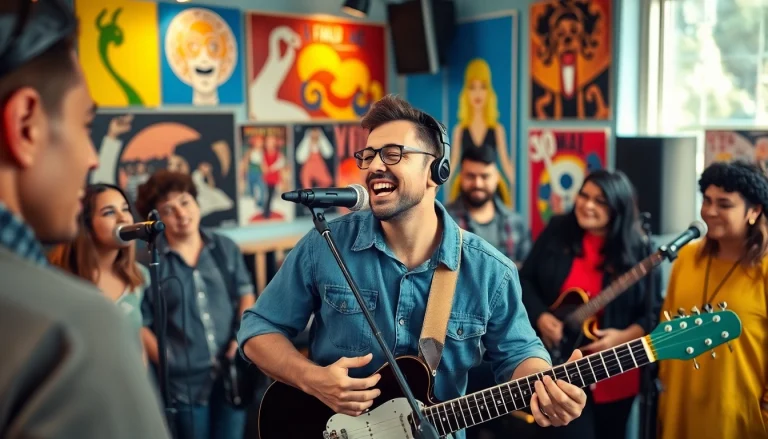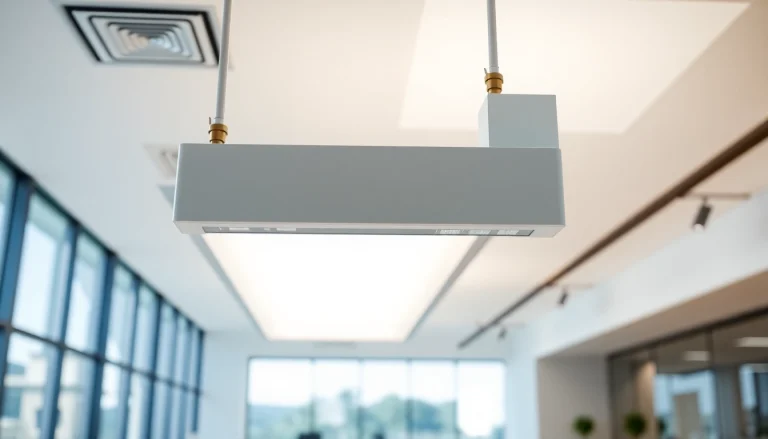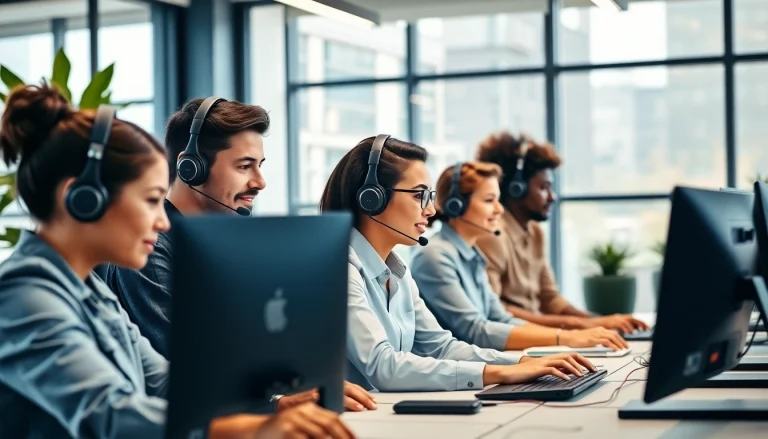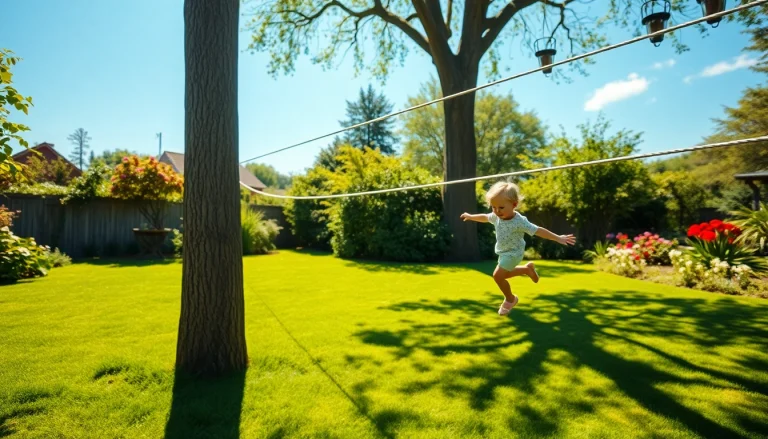Understanding the Passion of Live Music Fans
Live music fans are a unique demographic, fueled by their passion for the emotional and communal experiences that only live performances can offer. They are often the lifeblood of music culture, passionately supporting their favorite artists and forming communities around shared musical tastes. Understanding what drives these fans is crucial for anyone involved in the music industry. Their fervor and dedication not only shape the concert landscape but also influence marketing strategies and event planning. This article explores the many facets of live music fandom, providing insight into their motivations, behavior, and ways to enhance their experiences. For a deeper dive into the essence of live music fans, explore resources available on Live Music Fans.
What Drives Live Music Fans?
At the core of every live music fan’s experience is a complex mix of emotional and sociocultural drivers. Many fans are captivated by the powerful connection they feel to the music and the artists performing it. This connection can stem from a variety of factors such as personal experiences or the artist’s message and storytelling abilities.
One significant driver is the sense of community and belonging that arises from shared experiences. Concerts and festivals are not just events; they often serve as gatherings where fans can connect with one another. The communal aspect is essential to their enjoyment, as it enhances the overall experience and fosters friendships built around a mutual love of music.
Additionally, many fans are motivated by nostalgia and the desire to relive past memories associated with certain songs or artists. This emotional bond can lead fans to seek out live performances of their favorite acts to rekindle those sentiments or to share them with new generations.
Common Traits and Preferences
Live music fans exhibit several distinctive traits and preferences that can be categorized into multiple dimensions:
- Fandom Levels: Fans can range from casual listeners who attend a few shows per year to die-hard aficionados who follow their favorite bands across the country. This range affects their spending behavior, engagement level, and ways they showcase their fandom.
- Concert Preferences: Some fans prefer intimate venues where they can easily connect with the performers, while others thrive in large festival environments packed with thousands of fellow music lovers. Understanding these preferences is essential for curating the right concert experiences.
- Social Media Engagement: Many fans use social media platforms to connect with other fans, engage with their favorite artists, and share concert experiences. This digital engagement often translates into offline behaviors, such as attending meet-ups or purchasing merchandise.
The Importance of Live Experiences
The impact of live music extends far beyond the performance itself. Live experiences create unforgettable memories and often become pivotal moments in the lives of fans. This experiential aspect is what keeps fans returning for more, as each concert can offer something unique—whether it’s the thrill of hearing a beloved song live, interacting with the artist, or experiencing the camaraderie of fellow fans.
Moreover, live music fosters a sense of cultural expression and identity. Fans often find a thread of their personal narrative woven into live performances, enhancing their connection to the music and the larger cultural landscape. With immersive technology and innovative stage designs emerging, the live music experience is continually evolving, enhancing the quality and engagement of performances.
Building Community Among Live Music Fans
Creating a thriving community among live music fans involves facilitating connections both online and offline. Music is inherently about shared experiences, and providing spaces where fans can engage with one another is crucial for cultivating loyalty and passion.
Creating Online Platforms for Engagement
Digital platforms have become instrumental in uniting music fans. Social media groups, forums, and dedicated fan websites allow fans to share their thoughts, plan meetups, and discuss upcoming events. Creating dedicated spaces where they can express their enthusiasm helps solidify their connection to the music and each other.
Online engagement can be further enhanced through the use of interactive features such as polls, live chats, and Q&A sessions with artists. Live streaming shows, exclusive listening parties, and behind-the-scenes content can also complement their digital experience, making them feel more engaged with the artist and the community as a whole.
In-Person Meetups and Events
While online interactions are valuable, in-person connections take fan engagement to another level. Organizing local meetups, fan clubs, or viewing parties for concerts can help maintain the momentum of online discussions and foster deeper relationships. Tailoring these events to fans’ specific interests—such as open mic nights for local artists—can make them feel valued and integral to the community.
Additionally, integrating local bands into these events can encourage fans to discover new music and grow their community, allowing for a richer cultural interaction.
Collaborations with Local Artists
Working with local musicians offers live music fans a more intimate connection to the music scene. Collaborations can involve hosting open mic nights, festivals featuring both national and local artists, or even workshops where fans can learn about music creation. These opportunities allows fans to engage on multiple levels, deepening their investment in the live music experience.
A strong connection with local artists not only nurtures community bonds but can also keep fans invested in the growth of their local music scene.
Marketing Strategies to Reach Live Music Fans
Reaching live music fans requires targeted marketing strategies that resonate with this passionate audience. Each promotional method should emphasize the unique qualities of live performances and their associated experiences.
Leveraging Social Media Platforms
Social media has transformed how music is marketed. Platforms like Instagram, Twitter, and TikTok are crucial for reaching younger audiences. Engaging content—such as short videos, artist interactions, and sneak peeks—can create significant buzz around events.
Additionally, live streaming events or utilizing stories to build anticipation for concerts can lead to pre-event excitement and increase ticket sales. Engaging influencers within the music community to promote performances can also amplify reach and turn their followers into dedicated attendees.
Email Marketing Techniques for Concert Promotions
Email marketing remains a powerful tool for reaching live music fans. Well-crafted newsletters can keep fans informed about upcoming shows, exclusive ticket sales, and special offers, creating a feeling of exclusivity. Personalizing emails and segmenting audiences based on their preferences can increase conversion rates significantly.
Including interviews with artists, behind-the-scenes content, or curated playlists can provide value beyond just event promotions, nurturing a deeper loyalty to both the artists and the promoters.
Utilizing Influencer Partnerships
Collaborating with influencers who have a genuine connection to the music community can be an effective way to reach new audiences. These influencers often have established trust and rapport with their followers, making their recommendations particularly impactful.
Aligning with influencers during event promotions can bolster credibility and expand outreach digitally. Offering exclusive backstage access or collaborating on giveaways for concert tickets can also enhance engagement and interest.
Enhancing the Live Music Experience
As the live music landscape evolves, creating memorable experiences becomes increasingly important. Artists, promoters, and venue owners all have roles to play in crafting environments that resonate with fans.
Innovative Venue Concepts
Venues play a critical role in shaping the live music experience. Traditional spaces are starting to explore innovative concepts such as unique themes, immersive installations, and multifunctional settings. These changes can elevate a simple concert into an unforgettable experience.
For example, venues that incorporate visual arts, food experiences, or community engagement can transform a concert into a fully immersive event. Additionally, venues that prioritize accessibility and inclusivity can ensure that all fans can enjoy the performance.
Technology and Sound Quality
The technological advancements in sound quality and equipment are continually redefining the live music experience. High-fidelity sound systems, innovative acoustics, and immersive audio technologies like spatial audio enhance auditory experiences dramatically.
Furthermore, using augmented or virtual reality can create unique interactions between the audience and performers, making live events more accessible and engaging. Exploring these technologies allows promoters to craft experiences that are not only memorable but also distinctive.
Interactive Fan Experiences During Events
One of the most effective ways to enhance live events is through interactive fan experiences. From mobile apps that allow fans to engage directly with event activities to personalized merchandise booths, the options are endless. Gamifying the event experience—such as through contests or scavenger hunts—can encourage deeper interaction and make performances more enjoyable.
Engaging with fans during shows through live polling, fan shout-outs, or social media interactions can create a feeling of intimacy and connection that lasts long after the final encore.
Measuring Success with Live Music Fans
To ensure that strategies resonate with live music fans, measuring success effectively is essential. Only by understanding what works and what doesn’t can promoters and artists adapt their approaches for future events.
Key Performance Indicators for Engagement
Identifying key performance indicators (KPIs) helps gauge engagement levels and overall success. Metrics such as ticket sales, social media interactions, merchandise sales, and audience feedback are valuable indicators of the fan experience.
Tracking audience demographics can also provide insights into who attends, enabling better targeting for future marketing efforts. Monitoring these metrics helps in refining strategies to ensure sustained engagement over time.
Feedback and Surveys Post-Event
Collecting feedback post-event is vital for understanding audience perceptions and experiences. Surveys can capture valuable insights into what fans enjoyed, what they felt could be improved, and overall satisfaction levels.
Incorporating methods for ongoing feedback, such as follow-up emails or social media polls, allows organizations to remain responsive to fan opinions, fostering a sense of continuous engagement.
Adapting Strategies for Future Events
Adapting strategies based on collected data and feedback is key to creating an evolving, responsive approach to live music events. By analyzing trends, understanding fan preferences, and refining marketing strategies, organizers can tailor future events to align more closely with fan desires.
Whether it’s improving accessibility, diversifying the lineup, or enhancing venue experiences, staying attuned to fan feedback can lead to successful, memorable events that keep fans coming back for more.
